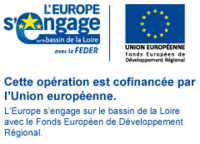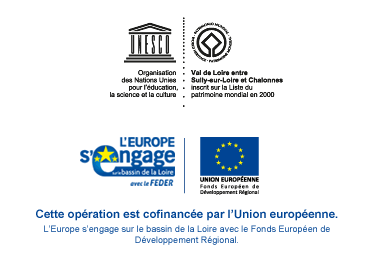- Home
- Resources
- Expériences
- Niger-Loire: governance and culture
Niger-Loire: governance and culture
Published on 21 December 2016 - Updated 04 January 2021
- 2007 - 2011
Coordinated by UNESCO and involving various Loire Valley stakeholders, this project, conducted between 2007 and 2011, was aimed at helping local communities to take greater ownership of municipal water management and therefore the impact of these projects on efforts to combat poverty. Support for consideration of the socioeconomic and cultural practices associated with the river is one of the specifics of the initiative.
Background
This project was one of the initiatives selected for the EU’s ‘ACP-EU Water Facility’ programme launched in 2004 with funding from the ninth European Development Fund. This Facility, aimed at the developing countries in African, Caribbean and Pacific (ACP) regions, was set up to address the need to mobilise additional resources as well as the need to work directly with those countries worst affected by a lack of access to drinking water and basic sanitation.
The aim was to encourage the roll-out of water and sanitation infrastructure and to improve water governance and integrated management practices of water resources in the ACP countries, by helping them to plug funding gaps. .
Aims
Coordinated by UNESCO for the River Niger in Mali, the project aimed at fostering improvement of the technical, institutional and consultation competencies of local authorities alongside the river.
Delivery
Implementation of the action relies on the existing decentralised cooperation agreements between the authorities alongside the River Niger and the French local authorities, particularly those located beside the Loire, which had forged a Loire-Niger partnership in 2005. The local authorities and specialist institutions (including Loire-Bretagne Basin agency) would lend methodological and technical assistance to the Mali institutions, municipalities and local authorities across the various strands of the initiative.
Mission Val de Loire’s action involved helping to initially define the project and the pilot activities in Mopti and in its Region, and bore on the research & training aspects: organisation of water management and heritage management modules as part of University of Bamako’s “Decentralisation and Engineering of Local Development” course.
Partners
UNESCO – World Heritage Centre
(lead partner)
France:
- IRD
- Centre Region
- City of Angers and Angers Loire Métropole
- Mission Val de Loire
- UCO - Université Catholique de l'Ouest
- University of François Rabelais, Tours
- Loire-Bretagne Basin Agency
Mali:
- University of Bamako
- National Directorate for Cultural Heritage
- National water partnership
- Niger basin authority
- Assembly of Municipalities of Mali (AMM)
- Regional Assembly of Mopti (ARM)
- City of Mopti
- City of Ségou
Outcome
5 work packages underpinned the initiative:
- Improving knowledge of river uses and users
- Strengthening the institutional framework of decentralised water management
- Strengthening the training provision for local authorities
- Master in “Decentralisation and engineering of local development” (DIDL), University of Bamako ( Training programme DIDL 2010 (PDF, 233.52 kB) )
- Hosting in the Loire Valley of Mali local officials and research leads: encounters with Loire stakeholders on the themes of river dynamics or public outreach events on heritage ( Sept-Oct 2007 , May-June 2009 , October 2009 )
- Roll-out of pilot demonstration actions to test the governance mechanisms and training content and implement operational measures for combating poverty.
- Follow-up of the project and outlining of recommendations to develop the project framework. See an example of the mission report: Mission report Mali 10-19 December 2008 (PDF, 867.53 KB) .
- Capitalisation and dissemination of methodological knowledge gained to encourage broader-scale roll-out of the approach at the national and sub-regional level, across the Niger basin via a range of formats
- Seminar Le fleuve au cœur du développement, expériences croisées (2 December 2010)
- Event programme Le Niger - Un fleuve et des Hommes (PDF, 1.82 MB) (10 May to 31 July 2011)
- Publication "Mopti, une ville entre la terre et l’eau, analyse urbaine et propositions d’aménagement" . This publication builds on the plans to renovate a quay (pilot action).
Vous n’avez pas trouvé l’information que vous cherchiez dans cette page ?
Demandez-nous
Bien reçu !
Nous vous répondrons prochainement.
L’équipe de la Mission Val de Loire.

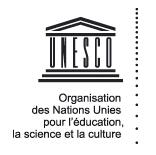
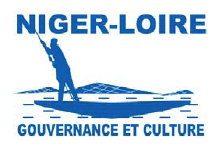

![Nouvelles Renaissance(s] 2023](/var/storage/images/val-de-loire-refonte/dossier-de-parametrage/pied-de-page/nouvelles-renaissance-s-2023/517479-13-fre-FR/Nouvelles-Renaissance-s-2023_image_largeur220.png)
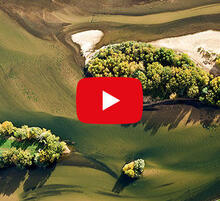

 Lettre d'information
Lettre d'information
 Facebook
Facebook
 Flickr
Flickr
 Podcloud
Podcloud
 Dailymotion
Dailymotion
 Box
Box
 Slideshare
Slideshare
 Diigo
Diigo
